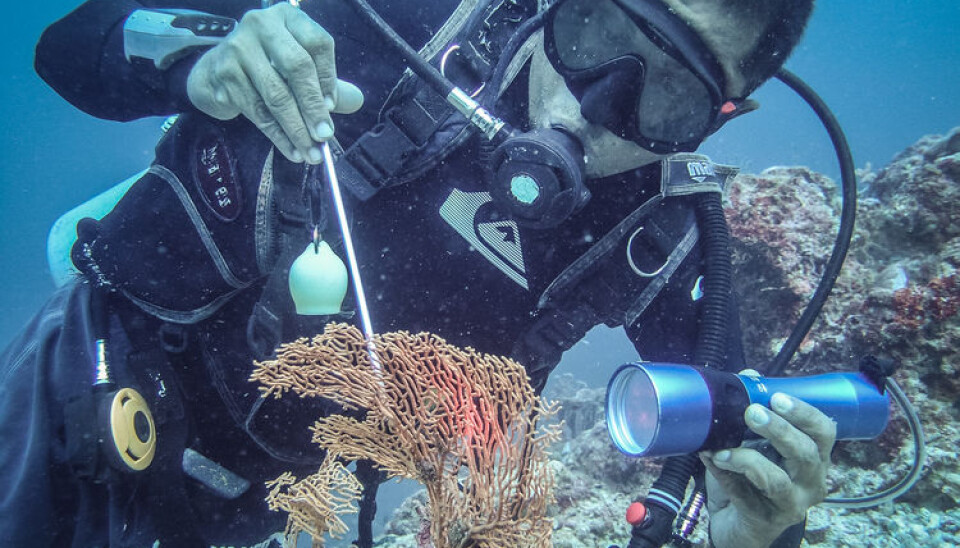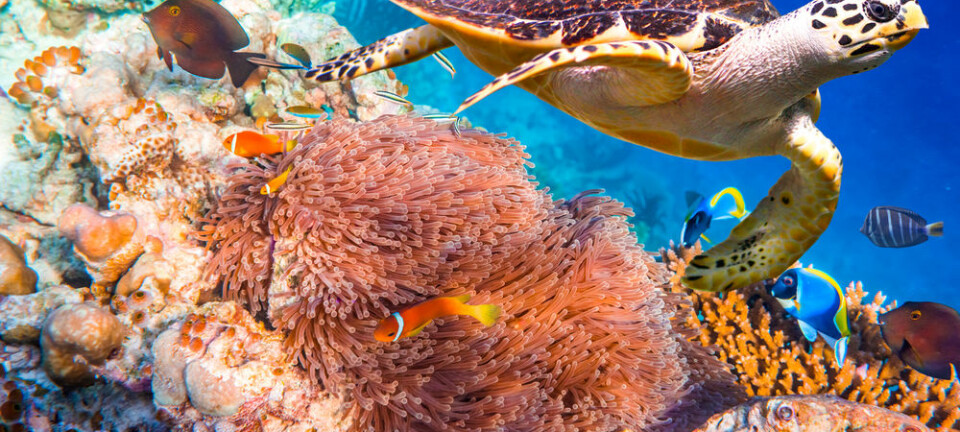
How climate change changed the face of marine science
The amount of marine science papers on climate change has doubled every five years since the release of the first UN report on climate change in 1990.
In the last 15 years, marine science has become increasingly dominated by the topic of climate change, shows new research.
And it is not just the physical sciences of oceanography and climatology that are focussed on how climate change affects the oceans. Marine biologists and ecologists have also shifted their focus to climate.
“There’s been a huge growth in the proportion of climate change research within the field of marine science,” says lead-author Martin Pedersen, postdoc at the National Institute of Aquatic Resources, Technical University of Denmark (DTU).
According to Pedersen, this growing interest in climate change among marine scientists coincides with the publication of the first report from the UN’s Intergovernmental Panel on Climate Change (IPCC) in 1990.
“Many people know of the IPCC reports, not only in the scientific community but it’s also in the general news. So even though we can’t prove that it’s the main driver [of shifting focus in marine science], I’m pretty sure that it’s had a huge influence,” says Pedersen.
The new results are published in the journal Climatic Change.
Climate change a growing concern to marine science
Pedersen and colleagues sorted through almost 2,800 marine science articles published in scientific journals since 1990. Of these, 1,362 dealt with the topic of climate change.
They grouped all of these articles into different disciplines, including the physical sciences with a focus on the ocean or atmosphere, the biological sciences, and the social sciences, which looked at economic aspects such as the livelihood of fishermen affected by climate change.
If a paper shared more than one discipline it would be labelled as inter-disciplinary.
They saw that since the first IPCC report in 1990, the number of scientific studies in marine science as a whole has doubled every ten years.
And within marine science itself, the number of scientific studies focussed on climate change has increased twice as fast--doubling every five years. This is a huge shift in the focus of marine scientists to the issue of climate change, says Pedersen.
Biologists more aware of climate change
But it is not just the total number of climate change studies that have shot up. Where once oceanographers and climatologists dominated climate change research, there is now an increasing focus on the topic from marine biologists.
“These disciplines [physical sciences] have studied climate change for a long time, well before the IPCC, so we wouldn’t expect this branch of science to explode simply as a result of the IPCC,” says Pedersen.
“But it could have caused the biological sciences to have changed focus as they become more aware of climate change,” he says.
Not only the IPCC that has scientists’ attention
Not all marine scientists are convinced that the IPCC is the main driver of this shifting focus to the topic of climate change.
Marine Biologist Christiane Lancelot, from the Université Libre de Bruxelles recently chaired a session on the changing face of marine sciences at the largest Earth Science conference held annually in San Francisco, USA.
Asked whether the IPCC has changed the face of marine sciences she writes, “This is true but not exactly true,” in an email to ScienceNordic.
“At the same time [end of the 1980s] ICSU [International Council for Science] launched the International Geosphere Biosphere Program on Global Change research,” writes Lancelot.
According to her, this large review program has also focussed scientists’ attention to the issues of climate change and contributed to the changing face of research across different disciplines.
Social Scientists yet to come on board
But not all scientists have shifted their focus to climate. Social scientists have published comparatively little on the topic of climate change in the marine environment.
Pedersen attributes this in part to the large investments in funding for international research teams and long running projects in the natural and biological sciences that has amassed huge amounts of data over the last 15 years.
“The big biological data collection programs for example are well organised, big projects, and often international. And they’re well funded, which you don't really have in the social sciences. Of course, there’s loads of data, but perhaps they’re not as accessible to social scientists as they are to biologists,” he says.
There are also relatively few interdisciplinary studies, indicative of how scientists from different disciplines still do not have many opportunities to interact and work together, says Pedersen.







